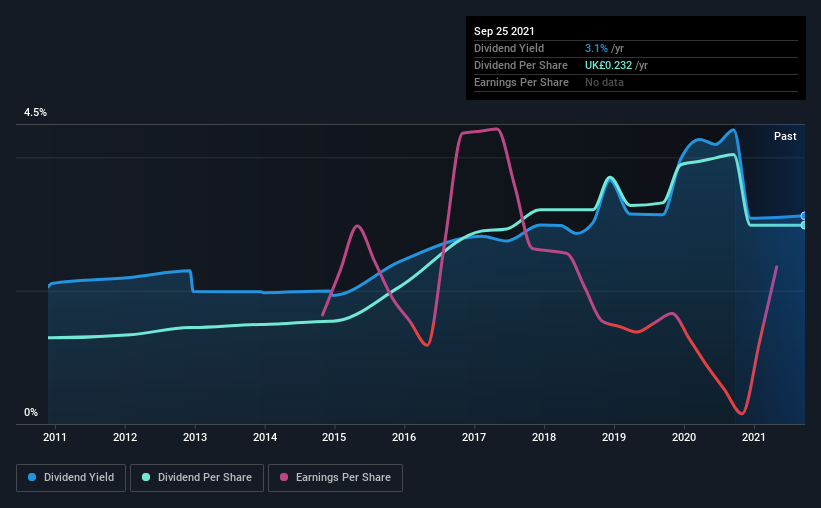Here's What We Like About Scottish Investment Trust's (LON:SCIN) Upcoming Dividend
Regular readers will know that we love our dividends at Simply Wall St, which is why it's exciting to see The Scottish Investment Trust PLC (LON:SCIN) is about to trade ex-dividend in the next 3 days. The ex-dividend date is one business day before a company's record date, which is the date on which the company determines which shareholders are entitled to receive a dividend. It is important to be aware of the ex-dividend date because any trade on the stock needs to have been settled on or before the record date. Therefore, if you purchase Scottish Investment Trust's shares on or after the 30th of September, you won't be eligible to receive the dividend, when it is paid on the 1st of November.
The company's next dividend payment will be UK£0.058 per share, on the back of last year when the company paid a total of UK£0.23 to shareholders. Calculating the last year's worth of payments shows that Scottish Investment Trust has a trailing yield of 3.1% on the current share price of £7.43. Dividends are an important source of income to many shareholders, but the health of the business is crucial to maintaining those dividends. We need to see whether the dividend is covered by earnings and if it's growing.
See our latest analysis for Scottish Investment Trust
Dividends are usually paid out of company profits, so if a company pays out more than it earned then its dividend is usually at greater risk of being cut. Fortunately Scottish Investment Trust's payout ratio is modest, at just 41% of profit.
When a company paid out less in dividends than it earned in profit, this generally suggests its dividend is affordable. The lower the % of its profit that it pays out, the greater the margin of safety for the dividend if the business enters a downturn.
Click here to see how much of its profit Scottish Investment Trust paid out over the last 12 months.
Have Earnings And Dividends Been Growing?
Companies with consistently growing earnings per share generally make the best dividend stocks, as they usually find it easier to grow dividends per share. If earnings fall far enough, the company could be forced to cut its dividend. Fortunately for readers, Scottish Investment Trust's earnings per share have been growing at 19% a year for the past five years.
The main way most investors will assess a company's dividend prospects is by checking the historical rate of dividend growth. In the last 10 years, Scottish Investment Trust has lifted its dividend by approximately 8.7% a year on average. We're glad to see dividends rising alongside earnings over a number of years, which may be a sign the company intends to share the growth with shareholders.
To Sum It Up
Should investors buy Scottish Investment Trust for the upcoming dividend? Companies like Scottish Investment Trust that are growing rapidly and paying out a low fraction of earnings, are usually reinvesting heavily in their business. This strategy can add significant value to shareholders over the long term - as long as it's done without issuing too many new shares. We think this is a pretty attractive combination, and would be interested in investigating Scottish Investment Trust more closely.
While it's tempting to invest in Scottish Investment Trust for the dividends alone, you should always be mindful of the risks involved. Every company has risks, and we've spotted 1 warning sign for Scottish Investment Trust you should know about.
If you're in the market for dividend stocks, we recommend checking our list of top dividend stocks with a greater than 2% yield and an upcoming dividend.
This article by Simply Wall St is general in nature. We provide commentary based on historical data and analyst forecasts only using an unbiased methodology and our articles are not intended to be financial advice. It does not constitute a recommendation to buy or sell any stock, and does not take account of your objectives, or your financial situation. We aim to bring you long-term focused analysis driven by fundamental data. Note that our analysis may not factor in the latest price-sensitive company announcements or qualitative material. Simply Wall St has no position in any stocks mentioned.
Have feedback on this article? Concerned about the content? Get in touch with us directly. Alternatively, email editorial-team (at) simplywallst.com.

 Yahoo Finance
Yahoo Finance 
